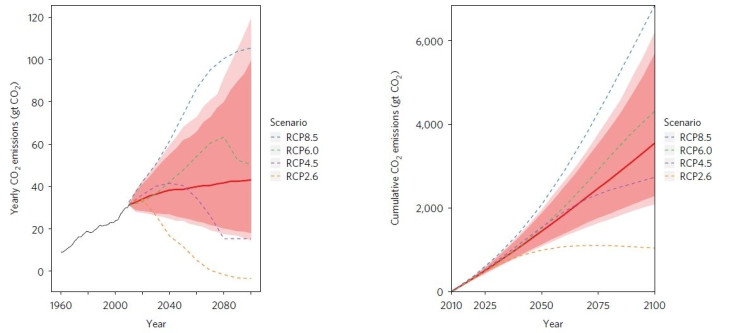Deaths in Europe due to extreme weather conditions 'could rise' 50-fold by 2100
Two in three Europeans are likely to be affected if greenhouse gas emissions and weather-related issues are not controlled.
Deaths due to extreme weather conditions, including heatwave, storms and floods could rise 50-fold by the year 2100 in Europe if no action is taken to tackle global warming and climate change, researchers have warned.
A study published in the Lancet Planetary Health journal on Friday (4 August) said 152,000 people could be killed each year during the last three decades of the century. This means two in three Europeans are likely to be affected if greenhouse gas emissions and weather-related issues are not controlled and dealt with properly.
These rates of exposure to extreme climatic disasters are estimated to be an increase from one in 20 of the population at the start of the century.
The shocking prediction is believed to be much higher than the weather-related deaths recorded per year between 1981 and 2010. About 3,000 people have died during this period.
The researchers have also warned that the drastically changing climatic conditions, unless "curbed as a matter of urgency" are also likely to affect 350 million people in 31 European countries who will be subjected to increased risk of death and health hazards.
"Climate change is one of the biggest global threats to human health of the 21st century, and its peril to society will be increasingly connected to weather-driven hazards," said Giovanni Forzieri, co-author of the study from the European Commission Joint Research Centre in Italy.
He added that governments and policies should focus on suitable measures to control climate change and global warming. But if nothing is done to improve protection against extreme weather, "these estimates are really alarming", Forzieri warned.
The researchers analysed the probable impact of the seven most dangerous weather-related disasters – heatwaves, cold snaps, wildfires, river and coastal floods, windstorms and droughts – in the 28 countries of the European Union, together with Norway, Switzerland and Iceland.

The team arrived at the grim prediction after analysing 2,300 weather disaster records from 1981 to 2010 to estimate population vulnerability.
The study also suggested that heatwaves would by far be the most lethal weather effect and could be responsible for 99% of all future weather-related deaths. It is estimated that 151,500 people would die annually between 2071 and 2100, a sharp increase from 2,700 deaths a year recorded between 1981 and 2010.
Similarly, the researchers predicted that there could a substantial rise in the death toll from coastal flooding. They said from six deaths a year at the start of the century, the numbers could go up to 233 a year by 2100.
While climate change would be responsible for 90% of the risks, the researchers found that population growth, migration and urbanisation would account for 10% of the problems.
However, the study did not take into consideration advances that are like to be made in medical technology by the end of the century, said Sean Sublette, a meteorologist at the nonprofit Climate Central, who did not participate in the study.

It also did not take into account the increase in installation of air conditioners in Europe, which are currently far less compared to the US, he added.
"However, this also serves as a reminder that those of lower economic status will struggle the most with the heat tied to climate change, as air conditioning may not be accessible. Heat will also be worse in the urban areas," Sublette said.
This research comes after another study predicted that parts of South Asia could become too hot to live by the 22<sup>nd century due to new extremes in temperature and humidity.
© Copyright IBTimes 2025. All rights reserved.





















